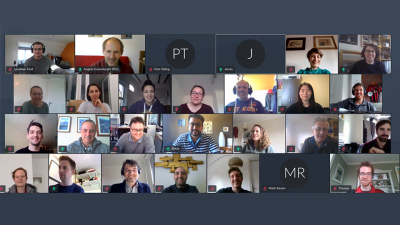Page path:
- Home
- Discover
- Archive News
- News 2020
- SLATE Workshop
SLATE Workshop
"All presentations and discussions ran smoothly without technical problems - scientific exchange is therefore possible across borders even in times of corona", summarizes Professor Katrin Huhn, who coordinates the project at MARUM.
SLATE involves 18 beneficiaries and partners, including universities, research institutions and companies, from seven European countries. The research in SLATE covers the entire process of submarine landslides: from trigger mechanisms and the subsequent downhill sediment transport to a better understanding of the potential tsunami risk and the resulting hazard risk for offshore infrastructure and the coastal regions.



